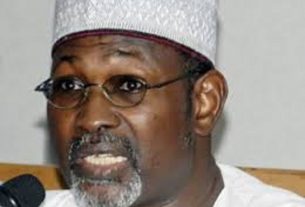- Directs commission to clear arrears latest December 31
- New pay, personnel costs to take N4.88tr in 2020
- Lawan, Gbajabiamila decry disruption of budget cycle
Full payment of the new minimum wage to Nigerian workers takes effect from April 18, 2019.
The Federal Executive Council (FEC) presided over by Vice President Yemi Osinbajo issued the directive on Wednesday in Abuja.
The approval followed an earlier agreement between organised labour and the Federal Government on the consequential adjustments.
In the adjustments agreed upon by the labour stakeholders, workers on grade level 07 will henceforth receive a 23.2 per cent increase in their salaries, those on grade 08 will get 20 per cent increase, level 09 (19 per cent), levels 10 to 14 (16 per cent) and levels 15-17 (14 per cent).
Minister of Labour and Employment, Dr. Chris Ngige, while briefing State House correspondents on the development, said FEC had already asked the National Salaries, Incomes and Wages Commission to effect the payments, including arrears owed workers, reflecting the consequential adjustments.
He said a deadline of December 2019 was also set to effect all payments while the benchmarks would be forwarded to state governments to guide them in their own implementation.
According to the minister, government settled for April 18 since it was the date the new minimum wage was signed.
“FEC also approved for us that the financial implication is worked out and the payment should be completed in or before December 2019. Council further directed that the minister of finance budget and national planning, through the office of the accountant general of the federation should affect all these payments before 31 December 2019.
“Council further directed that the National Income and Wages Commission and the Ministry of Labour and Employment should send the consequential adjustment table down to the states and local government as an advisory document for their information and guidance for their national joint public service status in their respective states because the national minimum wage is a national law,” Ngige said.
Meanwhile, the Minister of Finance, Budget and National Planning, Mrs. Zainab Ahmed, has disclosed that the Federal Government is to spend N4.88 trillion in actuallizing the new national minimum wage as well as other personnel costs in the 2020 fiscal year.
She made the disclosure during a public hearing on the 2020 budget estimates at a joint session of the Senate and House of Representatives.
Ahmed informed the lawmakers of the projected investment of N10.33 trillion in Government-Owned Enterprises (GOEs)/bilateral/multilateral project tied loans/expenditures.
According to her, the proposed budget deficit for 2020 pegged at N2.175 trillion (1.52 per cent of the GDP), would be funded mainly by borrowing of N1.594 trillion, comprising N744.99 billion domestic sources and N850 billion foreign sources (more concessionary financing against commercial financing arrangement.)
On debt servicing, the minister indicated that the Federal Government proposed N2.5 trillion, representing 23.74 per cent of target expenditure for the incoming fiscal year, and N296 billion for the retirement of maturing bonds to local contractors, representing an increase of 169.09 per cent from N110 billion for 2019.
Ahmed affirmed that the country achieved 58 per cent of its revenue target in the second quarter of 2019.
She gave the breakdown of the actual revenue that accrued to government’s coffer between January and June 2019, indicating that N900 billion (49 per cent) was from oil; N349.11 billion (86 per cent) from company income tax; N81.36 billion (71 per cent) from Value Added Tax (VAT) while N184.10 billion (100.47 per cent) was from customs collections. “Fiscal deductions by NNPC for federally funded projects also exceeded target.”
The Guardian





